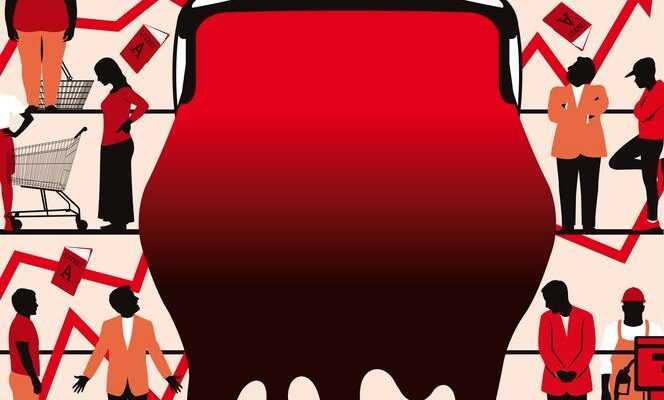Less purchasing power and savings whose value is slowly melting over the days. It is the bitter potion to which inflation, which reached 4.8% on an annual basis at the end of April, condemns the French – and particularly the most modest categories. Admittedly, the rate of the Livret A (as well as that of the Livret de développement durable et solidaire, LDDS) rose from 0.5% to 1% on 1er February, i.e. slightly more (0.2 points) than the level recommended by the legal revaluation formula. But this slight “boost” given to French savings – nearly 55 million people hold a Livret A, the most widespread product in France – has not, far from it, compensated for the erosion of the real return, once inflation is deducted.
Because it’s mechanical: with a price index exceeding 4%, the value of woolen stockings remunerated at only 1% melts. Thus, the total outstanding amount placed on the Livret A and the LDDS, of 483.6 billion euros at the end of March, is now suffering from a negative return of around three points. “Households are losing a lot of purchasing power on their savings”deplores Eric Dor, director of economic studies at the Iéseg School of Management.
Be extra careful
Small consolation: the situation is not specific to France. Inflation, which affects the entire euro zone – it even exceeds 10% in the Baltic countries! –, also eats away at the savings of our neighbours. In Germany, the real rate of savings account remuneration thus plunged to −7%. Insofar as France benefits from the lowest inflation in the monetary union, thanks to state aid, which cushions the rise in energy prices, “It is in our country that the loss is the least”, says Mr. Dor. Life insurance is hardly better off when it is invested in euros, which is the case for 60% of its total outstandings (1,857 billion euros, at the end of March).
“During large shocks, households no longer prioritize their consumption. » Alain Tourdjman, director of economic and prospective studies within the BPCE group
Yet, while inflation impoverishes savers, it does not discourage them from saving money. On the contrary, it even pushes them, to a certain extent, to be extra careful. The French savings rate, which rose above the 20% mark (of their gross disposable income) during the Covid-19 crisis, has hardly come down since, despite the end of the confinements, which had constrained consumption. After having signed its best year since 2010 in 2021, life insurance is doing like a charm, with 8.4 billion earned in the first quarter of 2022, when inflation was already threatening. Same thing for Livret A: an additional 12.2 billion have been placed there since January.
You have 59.12% of this article left to read. The following is for subscribers only.
